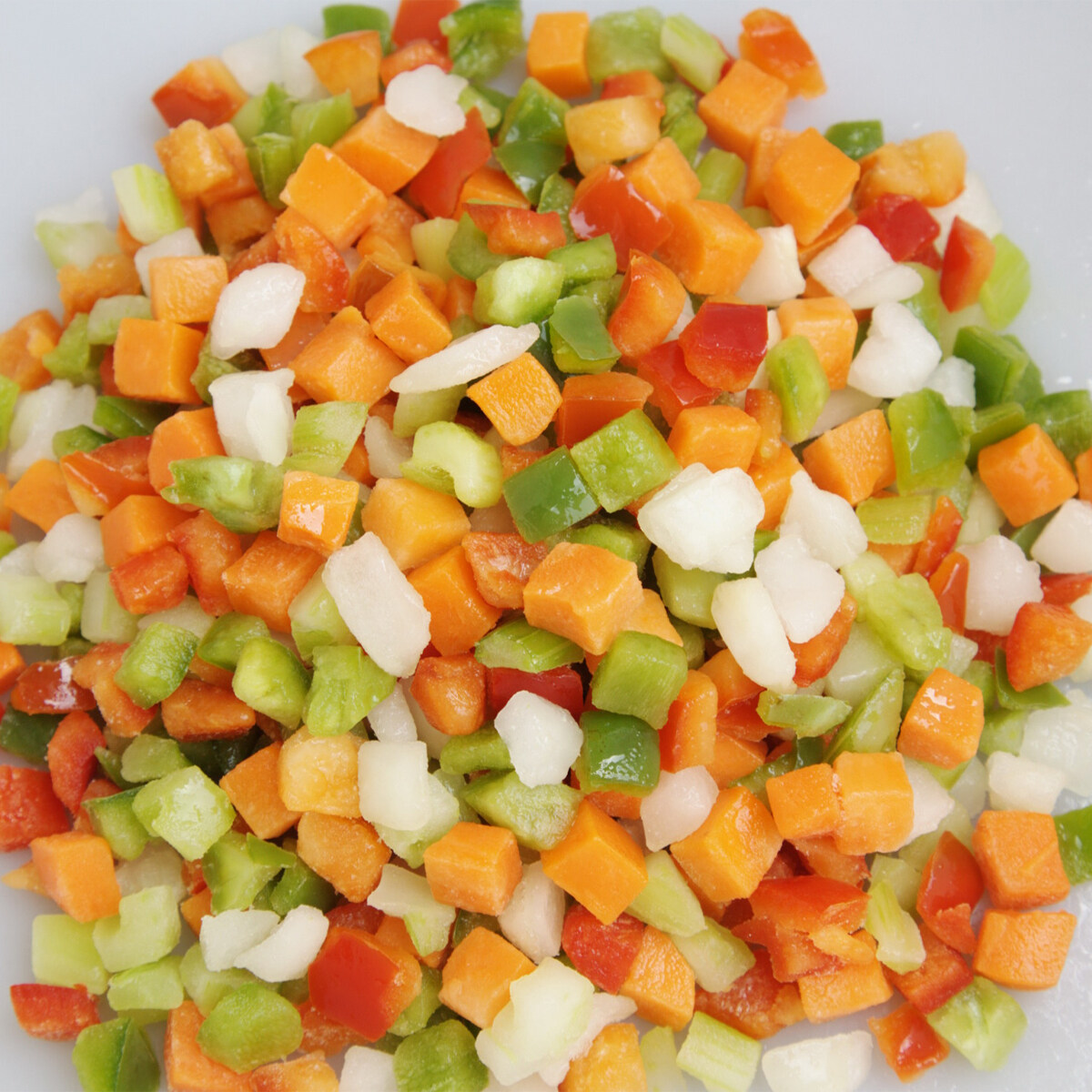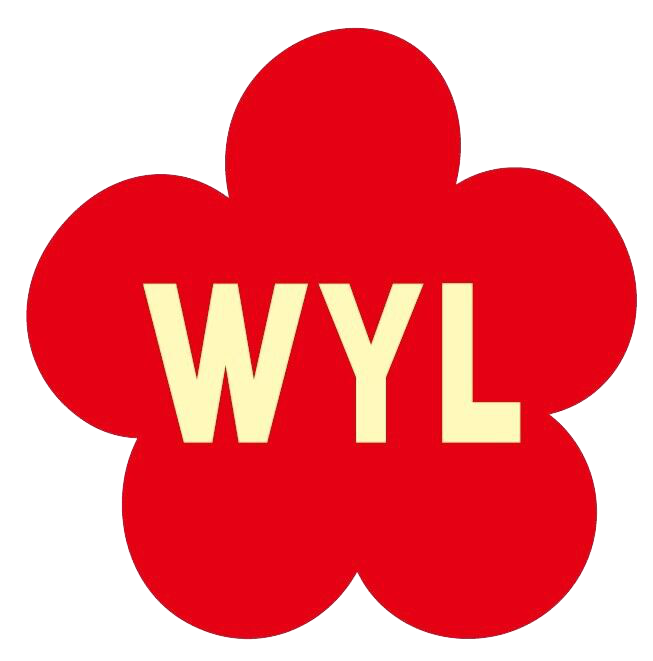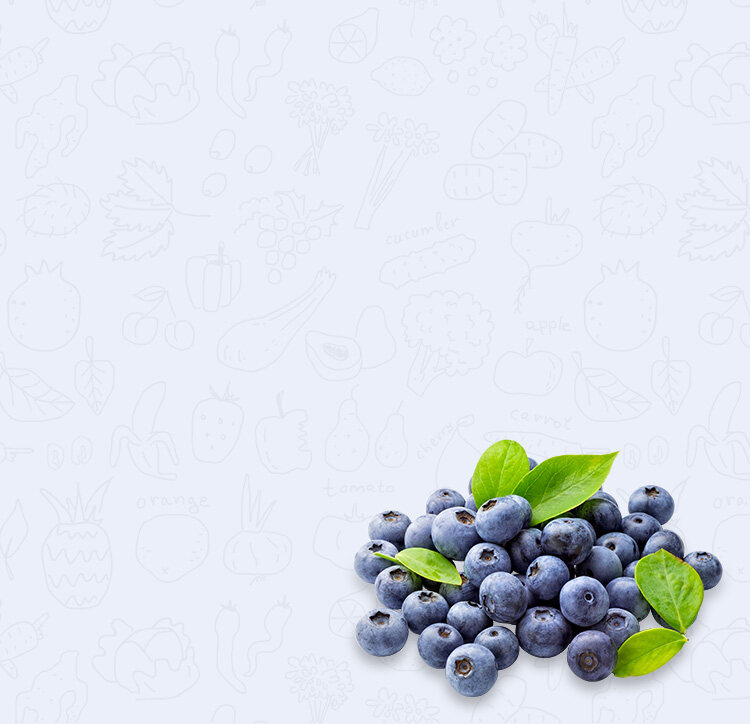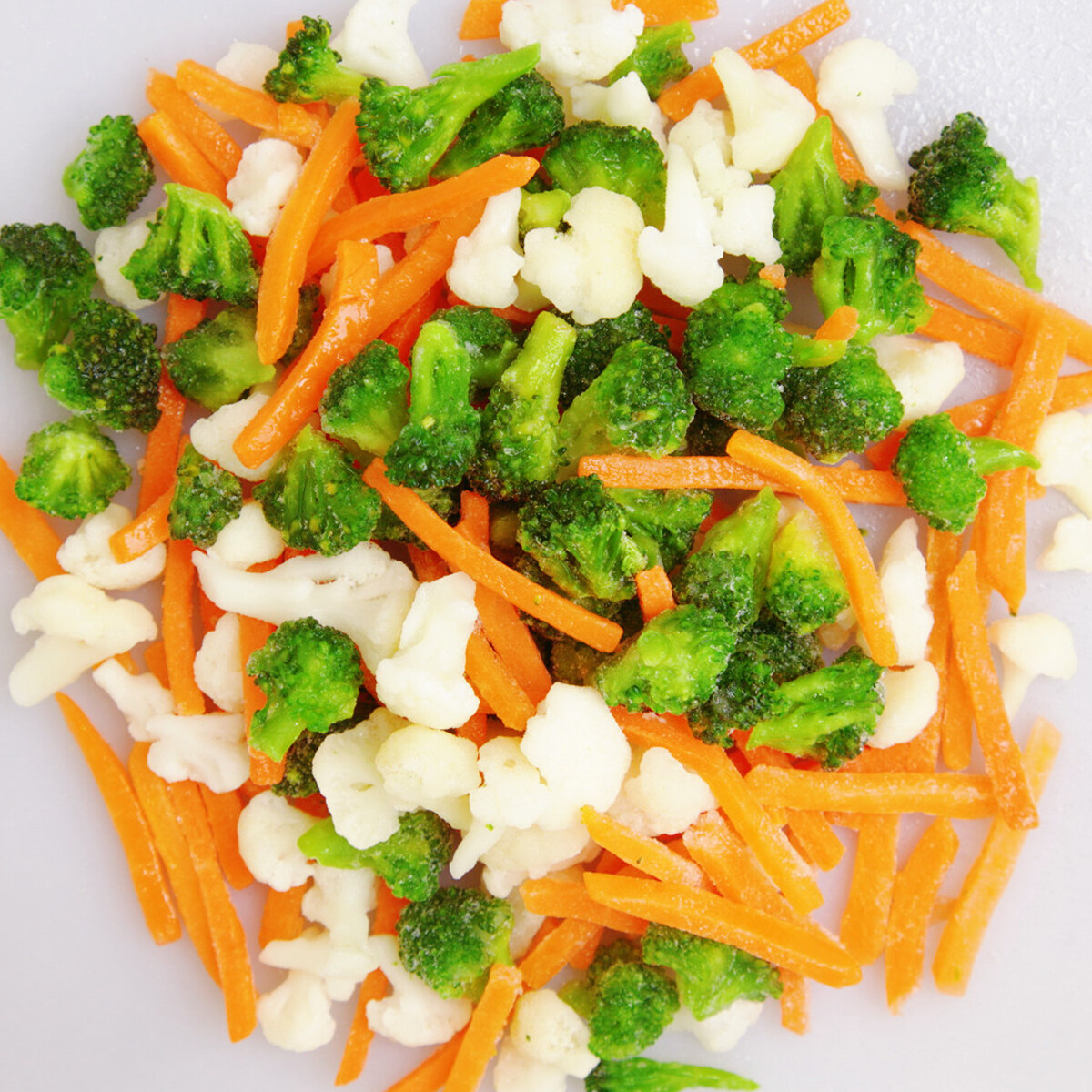FAQ about Frozen Fruits and Vegetables
In the past, you may choose ice cream or fresh chicken, duck, and fish when you go to the freezer area of the supermarket. However, in recent years, all kinds of quick-frozen vegetables have come into the public's view and are increasingly accepted. But there are still many questions about frozen fruits and vegetables.

Will freezing not damage the taste and structure of fruits and vegetables?
There are two methods for food freezing: slow freezing and quick freezing.
Traditional slow-freezing technology, as the name implies, cools slowly. Slow cooling will cause the water in cells to form larger ice crystals, which will damage the cellular structure of the food. After thawing, the water flows out of the cells, taking away the nutrients, and the taste of the food becomes worse.
Quick freezing refers to the rapid passage through the temperature zone of minus 1 ℃ to minus 5 ℃ (the maximum ice crystal formation zone) within 30 minutes. Therefore, under the quick freezing technology, more than 90% of the water will form fine ice crystals in the original position, most of which are evenly distributed in the cells, with little damage to the food tissue, and can obtain fresh fruits and vegetables with good nutrition and color. In particular, the texture of fruit and vegetable tissues is crisp and tender, and the freezing speed should be faster. This is why modern frozen storage technology advocates quick freezing.
Who has the highest nutrient retention rate?
Because the speed of chemical reaction is positively related to temperature, low temperature is beneficial to the preservation of nutrients. The lower the temperature, the stronger the protection. Indeed, someone has studied the comparison of nutrient content between fresh corn kernels and quickly frozen corn kernels. The results show that there are differences in some nutrients between frozen and fresh fruits and vegetables. But there is no significant difference on the whole. Even in some cases, the retention rate of frozen fruits and vegetables is higher.
Others have found that quick freezing does not affect sweet corn protein, that is, quick freezing and storage will not cause loss of sweet corn protein, indicating that plant protein changes little during quick freezing. Ascorbic acid is the most important vitamin in fruits and vegetables. It will lose much more slowly at minus 18 ℃.



